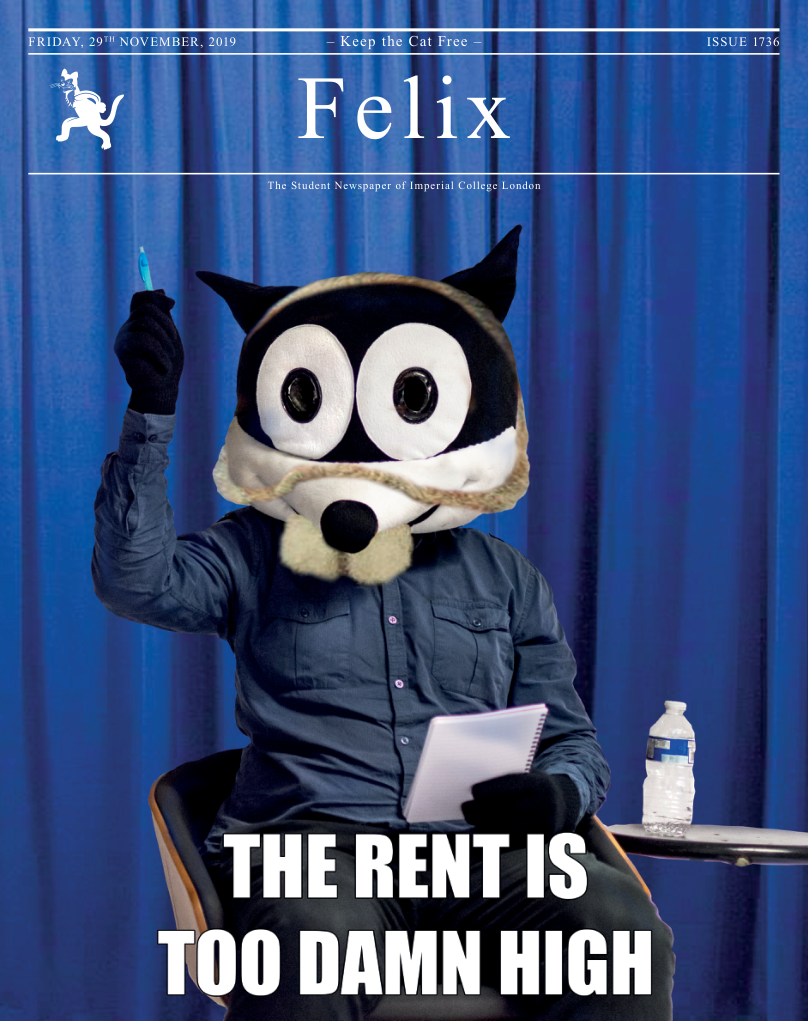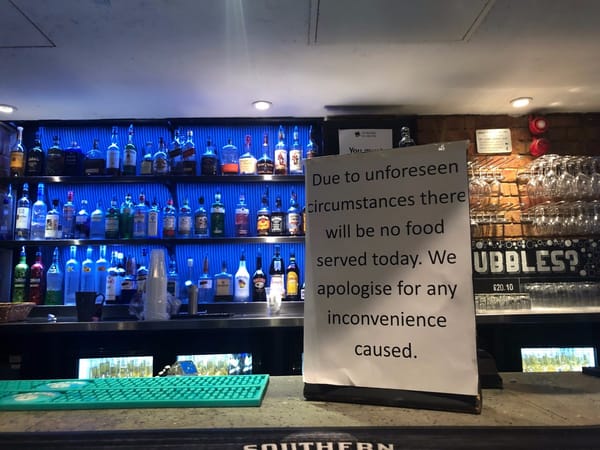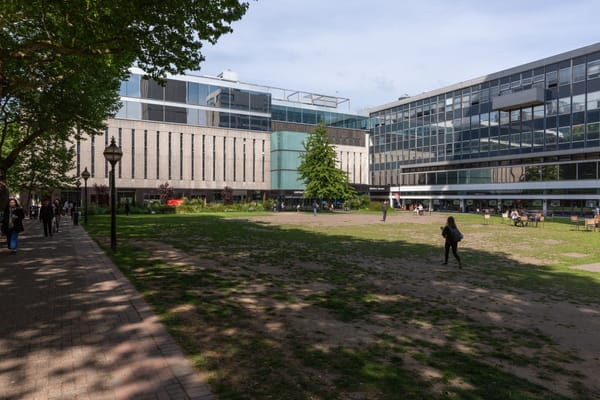Strike Action: Pensions and Pay
The Imperial branch of the University and College Union could not join with the nationwide strikes this week

At 60 universities across the UK, university staff who are members of the University and College Union (UCU) are currently staging an eight-day walkout and strike action in response to the ongoing disputes regarding pensions, pay, and working conditions.
The Imperial branch of the UCU, however, is not striking – despite the fact that 72% of ballot respondents voted in favour of taking action.
The culprit is the Trade Union Act – or, as Michael McGarvey, the head of Imperial UCU, puts it “the anti-Trade Union Act” – introduced by the Conservative government in 2016 and which came into force in 2017. The legislation makes it unlawful for any trade union to take action if the voter turnout does not hit a threshold of 50% - regardless of the support for action amongst voters. The Imperial UCU ballot from the start of this year only had a turnout of 47.99%, making it illegal for them to take action despite the 72% support – a result that Michael says had UCU members “furious and incandescent.”
The actions follow from the strike action regarding USS pension schemes in 2018, after a proposed shift to a less secure model, which caused disruption to Imperial students as contact hours were cancelled. The strikes now are due to disputes over both the pension scheme – which has proposed a rise in contribution of each member’s salary to 9.6% - as well as over pay and working conditions.
The concerns around working conditions are predominantly to do with exploitation of staff. Many postdoctoral or teaching fellow staff – particularly those on ‘precarious’, or fixed-term rather than permanent, contracts do not have provision for many parts of the work they end up doing. Many research grants do not, for example, contain pay allowance for teaching duties – but many staff end up taking on those duties ‘for free’ anyway, in an effort to build CVs, which mainly benefits the university. At the senior level, professors are often left feeling like their job descriptions are too open-ended, meaning extra work often gets added into their responsibilities on an informal basis that accumulates over time until it is unmanageable.
Chris Jackson, a member of the UCU and Professor of Earth Sciences, expanded: “Concerns related to overwork must be considered in the context of pay. If you get paid £200,000 a year to work 12 hours a day in the City, perhaps you can reconcile this sort of thing. But if your salary is low and if this makes living in London difficult, people rightly feel unhappy, exploited and undervalued. Being overworked and overpaid is an issue at all career stages, although some senior management are on six-figure salaries such that they are not exposed to this so much.”
The Imperial UCU balloted only on the issue of pensions at the start of the year, rather than on pensions and pay like many other UCU branches, because Imperial College management seceded from national negotiations on pay fourteen years ago. This means that Imperial staff negotiate their pay directly with the College, rather than in the national-level negotiations that affect pay scales for most researchers and lecturers in the UK.
Typically, negotiations about pay are carried out, and at the end an offer is presented to the Joint Trades Unions, comprised of the UCU as well as UNISON and Unite, who represent other groups of staff at the College. This year, the offer was an increase of 2% for salaries overall, representing a £600-1400 award for individuals. The unions can then decide whether to accept or reject the offer; in the latter case, as was the case this year, typically negotiations would reopen – or alternatively, the College has the power to simply impose the offer as it stands.
This year, neither occurred. After the rejection, the College put together four alternate options instead – each with the same 2% total increase, but distributed differently among different pay scales – which were all in turn rejected again. However, according to a College spokesperson, UNISON and Unite indicated an “informal preference” for one of the options if any were to be imposed. The College then decided to impose that option rather than open negotiations again.
From the UCU perspective, Michael says, this imposed scheme was worse than the original proposal, as it left many UCU members with a pay increase below the rate of inflation – which in real terms is equivalent to a pay cut.
Additionally, the offer was imposed at a time when it was too late for ballots to be completed before October. However, there is a possibility of conducting another ballot vote on both the pay and pension issues now that they have been established – and that is the option the Imperial UCU has taken, serving notice to College of that fact on Tuesday 26th and opening the new ballot next week.
“If management take the high-handed approach that they can ignore agreed procedures, can rip-up regulations and do so in a totally irresponsible fashion, then people have to say something about it. I don’t know if they weren’t thinking about their actions or if it was just incompetence. Maybe both. I’m almost speechless trying to rationalise why they have done this,” he said.
Chris further questioned the conviction of College management to make meaningful change to pay and workload:
“We staff understand there are external market forces at play that constrain finances. However, college management need to recognise that it is us, the students and staff, that have built and sustain the college’s reputation. In that sense, we should be valued more than it has felt during the last years. Warm words in college communications are not enough; we need to see change that is consistent with our collective morals and ethics. We are a zombie institution being bullied by external forces; we have autonomy and agency due to the relatively strong financial position we have collectively put the college in.”
When asked about the reason for the insufficient turnout, Michael suggested that it might be to the ballot being held at the same time as people were getting to grips with beginning of the academic year or that the first ballot was specifically about pensions and did not include pay disputes.
“Pensions are a part of your remuneration – and it being massively attacked by the USS executive is a reduction to the remuneration package you receive overall. But you don’t get it at the outset; it’s long-term, depending on where in your career you are, whereas pay is more immediate. We’re hoping that will galvanise members, and will be campaigning for higher turnout and a vote for action in the second ballot.”
Chris added further context from his perspective around working conditions: “Many people don’t strike, or didn’t vote to strike, because they’re ironically too busy and/or can’t afford to lose eight days of pay. They don’t feel they have the financial security, and feel threatened and precarious – what if your bosses action against you whilst away or when you get back? Academia is so hard to get into, so competitive, that management essentially have a captive audience that they can treat poorly without repercussion. There needs to be humanity in their treatment of staff. They were lecturers once, so they should understand.”






